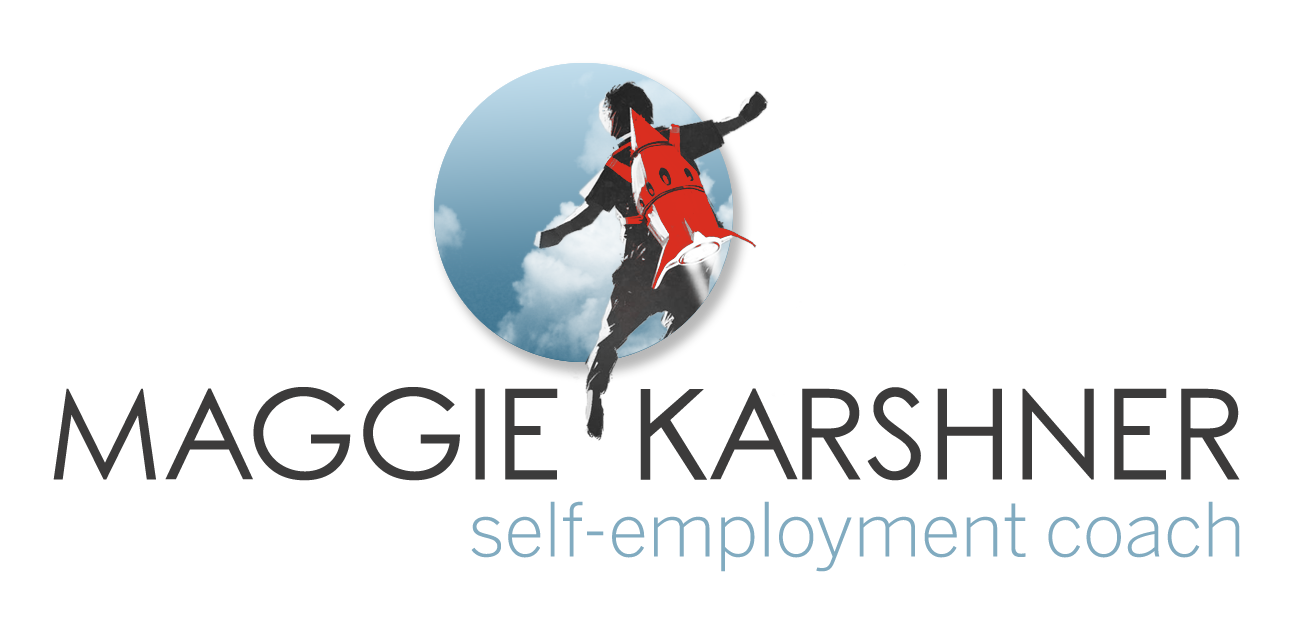Knock Networking Out of the Park
/image shows the title of the article over an image of people playing baseball in Central Park
So you've been on some one-on-one networking meetings (networking coffees, as I like to call them) and thanks to my previous tips, the conversation is going well. And yet you're still striving for that A+ grade in networking. Ok, you've been patient long enough, allow me to offer the road map to knocking a networking coffee out of the park.
At the bare minimum you want your fellow professional to know what you do. To make it easier for them (and give you that A+ you're striving for) you can also communicate this in terms of what they are likely to notice in their clients that will make them a perfect fit for you.
Here's what I mean by this: it's not as simple as them knowing your job title. They probably know other people with your same job title. And then you become one a of list of professionals they could recommend, but they're more likely to forget about entirely. On the other hand, if they learn that you are not just a professional [fill in the blank], but that you love working with [description], then those are more facts for their brain to hold on to and it's more likely to stick.
I'll use myself as an example. I'm a self-employment coach and while I've not come across anyone at a networking event who literally shares my job title, I do know fellow coaches who essentially do what I do. I also know that I'm typically unique in certain ways. I work well with people who have a lot of ideas but need focus, direction and accountability. I work well with people who value being in control and independent, and who have struggles around work-life balance and knowing when "enough" is. In contrast, I have colleagues who focus more on execution and analysis, or more on motivation and drive.
When I'm networking I'm trying to make sure I convey my uniqueness and this serves two purposes: memorability and accuracy.
Memorability
Things stick in people's head because they're unique, novel or interesting. Giving someone a more nuanced understanding of what you do is likely to fit that bill nicely.
Adding details such as how they might see a need for what you do crop up in their own work helps that further. For example, when I network with other coaches I'm sure to highlight areas they might find clients need help in that are not part of their own scope. So if I'm chatting with a life coach that specializes in helping people live their best life, then I can point out that if that "best life" involves self-employment then I'm a great resource for that client! This is a riff off of what I talked about last month: essentially you're identifying the cross-referral opportunity or client overlap and then describing that back to your networking buddy. By the end of the meeting they need to know that if they hear one of their people complaining about "x" then YOU are the one to call.
Accuracy
Let's play out what happens after the networking coffee: at some point in the future, my fellow professional meets someone who's looking for a coach and despite my failure to convey my uniqueness in that meeting, they remember me and pass my name along. You might be thinking this is a huge success moment! But it actually isn't. It turns out that prospective client is going through a divorce and wants a life coach to help them navigate that journey (or any of the countless other things that the broad field of coaching can offer support around.) That's not what I do at all! And so now I have to tell that person that I'm sorry, but I can't help them! Cue the sad trombone.
Even if your profession is something that could benefit "everyone" this still holds true. If you're a massage therapist, technically you could give a massage to anyone. Here's where it goes wrong:
Let's say you love doing deep tissue massage with a therapeutic purpose. One of the people you networked with sends to a referral and that person just wants a nice Swedish feel-good massage. Objectively this is not going to be the best client for you. And yeah, you can give them the massage and take their money, but it's not building your business long term. In fact, it's a loose-loose situation in the long term and here's why:
Since you don't love a massage that's simply "feel-good" you might not deliver a particularly feel-good massage. A displeased customer is never good. They're not likely to distinguish that you're not good at feel-good massages and simply say you're a bad massage therapist. That's not the message you want getting out into the world!
Even if you can deliver a feel-good massage resulting in a pleased customer then that is also not good. Now you've got someone who's going to tell all their friends that you do a great feel-good massage. This will result in more people wanting feel-good massages and now you're doing tons of those every day instead of the deep tissue therapeutic massages that are your passion.
I'm not saying not to take a clients money when they're not a *perfect* fit. What I am trying to drive home is that arming your fellow professionals with a more nuanced understanding of what you do is *so* much more likely to result in referrals who are somewhere in the ball park of what you do or love to do. And, in the best of cases, they hit the nail on the head and send an Ideal Client, and that client loves you and sends all their friends.
As I said at the beginning this is refining and honing your networking skills. Networking can be effective without this level of technique. And if you want to challenge yourself when it comes to networking, this is how to do it!
Flip it Around
This isn't just helpful for other people sending you clients, it can also make it easier for you to refer people! Flip this technique around and ask your networking date to explain what *you* should see in order to send a client to them. They might stumble a bit at first, but it will help you send them referrals that are a better match. (And they just got free second-hand coaching from Maggie Karshner! You're welcome! ;) )




